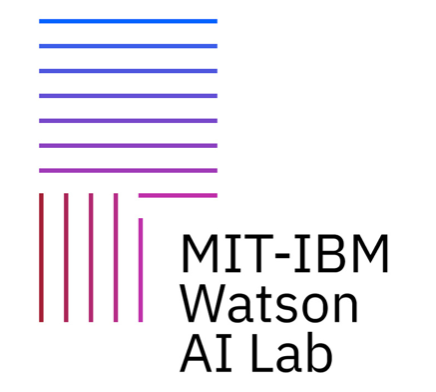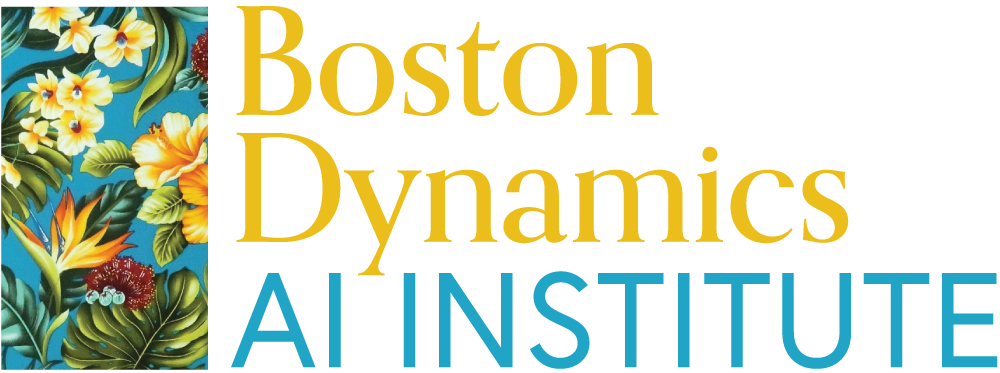| 13:00-14:30 |
Poster presentations |
-
Adaptive Trajectory Prediction via Transferable GNN
Yi Xu, Lichen Wang, Yizhou Wang, Yun Fu
(Northeastern)
-
Medical Image Representation Learning via Mutual Information Maximization
Sidong Zhang, Madalina Fiterau
(Umass Amherst)
-
Rethinking 3DMM-Conditioned Face Synthesis
Yiwen Huang, Zhiqiu Yu, Xinjie Yi, James Tompkin
(Brown)
-
GPU-HC: GPU-Based Homotopy Continuation Solver for Minimal Problems in Computer Vision
Chiang-Heng Chien, Hongyi Fan, Ahmad Abdelfattah, Elias Tsigaridas, Stanimire Tomov, Benjamin Kimia
(Brown)
-
Learning Object-Centric Dynamic Modes from Video and Emerging Properties
Armand Comas, Christian Fernandez, Sandesh Ghimire, Haolin Li, Mario Sznaier, Octavia Camps
(Northeastern)
-
Comparing Correspondences: Video Prediction with Correspondence-wise Losses
Daniel Geng, Max Hamilton, Andrew Owens
(Umass Amherst)
-
EVAL: Explainable Video Anomaly Localization
Ashish Singh, Michael J. Jones, Erik Learned-Miller
(Umass Amherst)
-
Multiview Curve Correspondence for Curve Grouping and Reconstruction
Yilin Zheng, Chiang-Heng Chien, Benjamin Kimia
(Brown)
-
Exploring visual prompts for adapting large-scale models
Hyojin Bahng, Ali Jahanian, Swami Sankaranarayanan, Phillip Isola
(MIT)
-
On the capability of humans and reinforcement learning agents to generalize across noisy worlds
Serena Bono, Spandan Madan, Ishaan Grover, Hanspeter Pfister, Gabriel Kreiman
(Harvard)
-
Is that Pruning Experiment Really Fair? – On the Role of Trainability in Network Pruning
Huan Wang, Can Qin, Yue Bai, and Yun Fu
(Northeastern)
-
Mitral Regurgitation Detection Using Cardiac Imaging Data
Ke Xiao, James Priest, Erik Learned-Miller, Madalina Fiterau
(Umass Amherst)
-
Using spatio-temporal information in weather radar data to detect and track communal bird roosts
Gustavo Perez, Wenlong Zhao, Zezhou Cheng, Maria Carolina T. D. Belotti, Yuting Deng, Victoria F. Simons, Elske Tielens, Jeffrey F. Kelly, Kyle G. Horton, Subhransu Maji, Daniel Sheldon
(Umass Amherst)
-
ConDor: Self-Supervised Canonicalization of 3D Pose for Partial Shapes
Rahul Sajnani, Adrien Poulenard, Jivitesh Jain, Radhika Dua, Leonidas J. Guibas, Srinath Sridhar
(Brown)
-
Towards High-Quality and Efficient Video Super-Resolution via Spatial-Temporal Data Overfitting
Jie Ji, Gen Li, Xiaolong Ma
(Northeastern)
-
Joint rotational invariance and adversarial training of a dual-stream Transformer yields state of the art Brain-Score for Area V4
William Berrios, Arturo Deza
(MIT)
-
Divide and Compose with Score Based Generative Models
Sandesh Ghimire, Armand Comas, Davin Hill, Aria Masoomi, Octavia Camps*, Jennifer Dy*
(Northeastern)
-
UniverSeg: Universal Medical Image Segmentation
Victor Ion Butoi, Jose J. Ortiz, Tianyu Ma, John Guttag, Mert R. Sabuncu, Adrian V. Dalca
(MIT)
-
Image to Sphere: Learning Equivariant Features for Efficient Pose Prediction
David Klee, Ondrej Biza, Robert Platt, and Robin Walters
(Northeastern)
-
Accidental Turntables: Learning 3D Pose by Watching Objects Turn
Zezhou Cheng, Matheus Gadelha, Subhransu Maji
(Umass Amherst)
-
Using 3D Models in Virtual Reality to Address Small Data Challenges in Human/Animal Pose Estimation
Max Leblang, Le Jiang, Xiaofei Huang, Sarah Ostadabbas
(Northeastern)
-
PlanarRecon: Real-time 3D Plane Detection and Reconstruction from Posed Monocular Videos
Yiming Xie, Matheus Gadelha, Fengting Yang, Xiaowei Zhou, Huaizu Jiang
(Northeastern)
-
Persistent Nature: A Generative Model of Unbounded 3D Worlds
Lucy Chai, Richard Tucker, Zhengqi Li, Phillip Isola, Noah Snavely
(MIT)
-
ToRF++: 3D reconstruction and novel view synthesis for fast motion using Time-of-Flight cameras
Mikhail Okunev, Benjamin Attal, Marc Mapeke, Christian Richardt, Matthew O’Toole, James Tompkin
(Brown)
-
Skeleton-based 3D shape generation and editing
Dmitrii Petrov, Vikas Thamizharasan, Matheus Gadelha, Vova Kim, Siddhartha Chaudhuri, Evangelos Kalogerakis
(Umass Amherst)
-
Cross-view Action Recognition via Contrastive View-invariant Representations
Yuexi Zhang, Dan Luo, Balaji Sundareshan, Octavia Camps, Mario Sznaier
(Northeastern)
-
PARTICLE: Part Discovery and Contrastive Learning for Fine-grained Recognition
Oindrila Saha, Subhransu Maji
(Umass Amherst)
-
Generalized Relative Neighborhood Graph (GRNG) for Similarity Search
Cole Foster, Berk Sevilmis, Benjamin Kimia
(Brown)
-
Spatio-Visual Fusion-Based Person Re-Identification for Overhead Fisheye Images
Mertcan Cokbas, Prakash Ishwar, Janusz Konrad
(BU)
-
Natural Language Descriptions of Deep Visual Features
Evan Hernandez, Sarah Schwettmann, David Bau, Teona Bagashvili, Antonio Torralba, Jacob Andreas
(MIT)
-
Unsupervised feature correlation network for localizing breast cancer using prior mammograms
Jun Bai, Annie Jin, Madison Admas, Shanglin Zhou, Caiwen Ding, Clifford Yang, and Sheida Nabavi
(UConn)
-
Leveraging Temporal Context in Low Representational Power Regimes
Camilo Fosco, Souyoung Jin, Emilie Josephs, Aude Oliva (MIT)
-
Q: How to Specialize Large Vision-Language Models to Data-Scarce VQA Tasks? A: Self-Train on Unlabeled Images!
Zaid Khan, Vijay Kumar BG, Samuel Schulter, Xiang Yu, Yun Fu, Manmohan Chandraker (Northeastern)
-
Parameter-Efficient Masking Networks
Yue Bai, Huan Wang, Xu Ma, Yitian Zhang, Zhiqiang Tao, Yun Fu (Northeastern)
-
Analysis of Saliency Frameworks on Fine Grained Image Classification
Rangel Daroya, Aaron Sun, and Subhransu Maji (Umass Amherst)
-
Look More but Care Less in Video Recognition
Yitian Zhang, Yue Bai, Huan Wang, Yi Xu, Yun Fu (Northeastern)
|
| 14:30-15:45 |
Oral presentations 2 |
-
ShapeCrafter: A Recursive Text-Conditioned 3D Shape Generation Model
Rao Fu, Xiao Zhan, Yiwen Chen, Daniel Ritchie, Srinath Sridhar
(Brown)
-
Exploring Consistency in Cross-Domain Transformer for Domain Adaptive Semantic Segmentation
Kaihong Wang, Donghyun Kim, Rogerio Feris, Kate Saenko, Margrit Betke
(BU)
-
Learning Regular Rearrangements of Objects in Rooms
Qiuhong Anna Wei, Sijie Ding, Jeong Joon Park, Rahul Sajnani, Adrien Poulenard, Srinath Sridhar, Leonidas Guibas
(Brown)
-
Analysis of Explainability Frameworks on Fine Grained Image Classification
Rangel Daroya, Aaron Sun, Subhransu Maji
(UMass Amherst)
-
Momentum is All You Need for Adaptive Optimization
Yizhou Wang, Yue Kang, Can Qin, Huan Wang, Yi Xu, Yulun Zhang, Yun Fu
(Northeastern)
|





